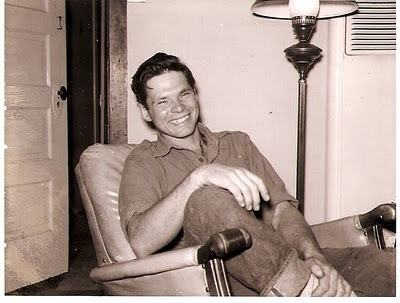
A yoga pose named Rabbit. Sounds soft right? Gentle gray velvet.
"Sit in fixed firm pose, flip your towel over your feet, grab your heels, straighten your spine, look at your navel and breathing out slowly bend forward until your forehead touches your knees. The top of your head should rest on the floor. Not too much pressure. Make sure your heels are touching, the tops of your feet are flat on the floor and you're not moving your head. If your knees are no longer touching your forehead, scoot them forward one at a time. Pull hard on your heels, lift your hips so that your thighs are at a ninety degree angle to the floor. Keep your chin tucked. This is a compression pose. It's supposed to be uncomfortable. Breath normally. If you can't breath normally, you're trying too hard. Don't bully yourself in here. Suck in your stomach. Keep your eyes open."
Not a bit of softness to be found. I suppose we might look a bit like rabbits hunched in fear against approaching predators, but the metaphor begins and ends there for me.
At the beginning of my yoga journey, I didn't mind Rabbit so much. It's close to the end of the session and follows Camel which in the early days made me so dizzy and disoriented I could barely get started. So Rabbit seemed easy by comparison.
It also seemed easy because I only managed to hear about three of the instructions, and I was able to convince my body to do those three things. I held my heels, touched my forehead to my knees, and remembered to breathe.
Over time, I've been able to hear more of the instructions and apply them one by one. Each time I make an adjustment, I'm amazed at how it changes the pose. This week it was, "Deb, can you flatten the tops of your feet to the floor?"
I actually wasn't aware that they weren't flat on the floor, although it wouldn't have mattered because until that moment, I'd never heard that part of the instructions.
And so I did - consciously make the tops of my feet flatten against my towel without undoing any of the rest of the pose I was clinging to. My right calf promptly seized in a cramp that knocked me completely out of a pose we're told to come out of carefully because we could hurt our necks. Lying on my back like an upended beetle, desperately trying to stretch out the knot in my leg, and also attempting not to be a distraction while the teacher looked on in amused concern, I found myself thinking how different the pose felt for the two seconds I managed to be there.
Each new awareness and adjustment creates conflict for me. I get excited at my progress, and amazed that my body is starting to unloose the iron survival grip that's been my normal for years. I marvel at how one small shift can change the entire pose and stretch previously unknown territory. And then I struggle with the shame that it's taken so long to make such small changes. And then I look straight into the face of overwhelm at the prospect of how far there is yet to go.
We're told constantly, "It could take a lifetime to completely understand this pose. It's okay. Just doing your best will get you full benefits."
I want to believe that. Some days I do. Maybe even most days. And I appreciate the permission, even as I scoff at how ridiculous it seems. I'm surrounded by agile, flexible, nearly naked gorgeous young people who are more often admonished to not go too far into a pose than urged to go deeper. Best has very different meanings for them than it does for me.
My struggle is not with doing my best. I frequently mistake best with trying so hard I lose myself, and have worked hard to break that pattern. My struggle is allowing my best to be good enough for now, and trusting that over time best will change, and believing the growth is more than a finger pointed backward at where I think I should have been long before.
Perhaps Rabbit is meant to be gentle and soft, or at least the approach to it. Perhaps allowing my body its own wisdom and timing, trusting that it wants to be free at least as much as I want that freedom - perhaps that's the key. Yesterday in Rabbit the tops of my feet were flat on the floor, and it wasn't even that hard to convince them to go there. Now if I could only get my hips in line with my knees.
 photos from Flickr
photos from Flickr
















